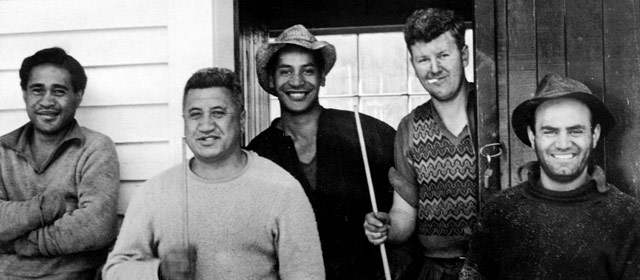Is New Zealand an equal society?
Jovana Balanovic 24 May 2013

New Zealand has come a long way in accepting ethnic diversity and cultural difference. However, in CACR's Colleen Ward and James Liu's study the changes are highlighted as having been largely only in theory. New Zealand may have ’symbolic biculturalism,’ however in practice Pakeha New Zealanders are still, to some extent, unwilling to redistribute their resources.
In theory, the signing of the Treaty of Waitangi in 1840 secured equality and respect between Maori and the Crown (and therefore its British subjects). It was also the starting point for New Zealand's evolution of inter-ethnic relations.
Despite the considerable improvement of the position of Maori in today’s society (e.g. expansion of Maori culture, the teaching of Te Reo in schools, an established Ministry of Maori Affairs), Maori continue to lag behind in statistics.
In saying this, Maori are not the only ethnic group who have experienced forms of discrimination. Immigrants from many countries have chosen to settle and contribute to New Zealand’s society. However, it was only in the 1970s and 1980s that our immigration policy stopped favouring European descendants and began accepting immigrants on the basis of skills, financial assets and family relationships. You can read more about New Zealand’s immigration history here.
An example of ethnic conflict occurred between Maori and Pakeha in 2004 over public access of the Foreshore and Seabed of New Zealand. The Court of Appeal addressed this on the premise that as part of the Treaty, Maori were entitled to “redress past injustices”. Yet some New Zealanders saw this as a violation of equality and insisted the past had no relevance to the present. In the end, their redress was denied. You can read more about the Foreshore and Seabed debate here.
Contemporary research on racial equality indicates there are still significant ethnic imbalances. Maori, as mentioned, continue to be disadvantaged and discriminated against alongside other ethnic groups (Chinese, Korean, African, and Indian). Importantly, it has been shown that perceived discrimination can lead to negative effects such as stress, poor self and group esteem, impaired health and anti-social behaviours.
As New Zealanders, if we aim to achieve a successful bicultural and multicultural national identity, we need to reassess our perspectives.
Colleen Ward and James Liu suggest that, firstly, we need to understand the history of colonisation and how that affected and still affects Maori people today. Such an education would build greater understanding around acknowledging the indigenous rights of Maori and redressing past injustices. These shifts should lead to more ethnic equality.
Secondly, as New Zealanders we need to appreciate and respect other immigrants and encourage their integration into New Zealand. We can do this by nurturing their participation in our society and accepting the maintenance of their own heritage cultures.
If we follow these considerations, we will be working towards what is termed a “super-ordinate National Identity” where, regardless of your ethnic background, you can still consider yourself part of New Zealand its cultural identity. This will lead to increased harmonious ethnic relations and a more tolerant society.
Read more here: Ethno-Cultural Conflict in Aotearoa/New Zealand: Balancing Indigenous Rights and Multicultural Responsibilities by Colleen Ward and James H. Liu, Handbook of Ethnic Conflict, International and Cultural Psychology 2012, pp 45-69.
Image credit: Te Ara Encyclopedia of New Zealand
